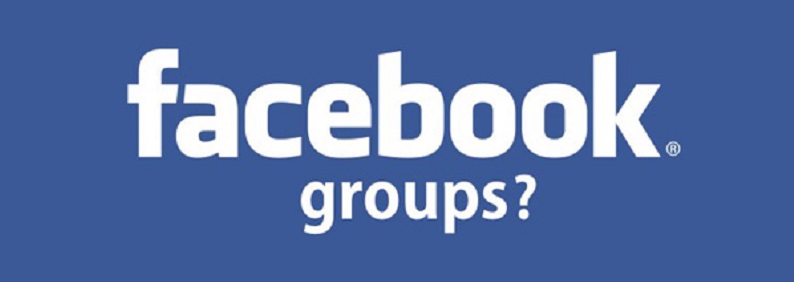
Facebook Groups | 10 Lessons Learned Building a Strong Community
Successful Facebook Groups are not about the brand, they are not about the organization and they are certainly not about the administrator of the group. Facebook Groups are about your group members and the community they build socializing with each other within a facilitated group.
A Facebook Group is a community and is NOT an audience! If your Facebook Group is mainly a discussion between the organization and the members of the group, that’s an audience, not a community. However, if the conversation is mainly between the group members themselves, that is a community!

At a recent MeetUp, sponsored by DigitalMarketer.com and Viral Solutions, Suzi Nelson was our gracious guest speaker. During this meetup, Suzi shared with the group her experience building groups and supplied her presentation “10 lessons I learned on building a strong customer community”, so we could share it here with you. This article is part two on this topic, you can find part one here. The information shared here was provided to Viral Solutions and we thank Suzi for allowing us to share it with our community.
Who is Suzi Nelson and what is her role at Digital Marketer?

Suzi Nelson is the Lead Community Strategist at Digital Marketer. She has a degree in Journalism (Strategic Communications) from the University of Kansas (Rock Chalk Jay Hawk!) and is an avid defender of the Oxford comma. You can find Suzi connecting with DM's customers in their Facebook mastermind groups, DM Engage and DigitalMarketer ELITE Commons. Connect with her on Twitter or LinkedIn.
10 Lessons Learned Building a Strong Community with Facebook Groups
1) Know Where Your Community Fits.
As your prospective customer or client moves through your customer journey it is important to understand where that person is along this map and where your Facebook Group intends to fit in that same map. Suzi points out in her presentation, that the role of marketing is to move prospects and customers seamlessly through each stage of the Customer Value Journey. No one community can move people through the entire Value Journey. Digital Marketer states that there are three primary phases in a customer journey that need to match a community. 1) Aware & Engage Communities 2) Excite & Ascend Communities 3) Advocate and Promote Communities. An awareness community might consist of prospects. Excite communities might consist of new customers. Advocate communities might consist of long time loyalists.
2) It's Not About You.
Most SMB's are under pressure to maximize sales in all forms of marketing. This is not the place to pitch. Groups are not about you. Your community is not your audience. If the conversation within your community is primarily between you and your community members, then they are your audience. If conversation is mainly between members of your group, that's a community! Suzi continued to say, “A segment of people who form relationships as a result of shared goals, experiences, and interests – that is a community.” Your community should be a segment of your market and those members should have been targeted for their interest in what you offer and where they exist in your customer journey. Yes, they should have some experience with your brand, your services, your industry and their need should match your USP. However, the focus needs to be on their relations with each other and not with you! Your role is to facilitate those relationships and keep the conversation growing. You may do so by calling upon other members to answer certain questions from your community members, you should not be the one who always answers those questions. Get antiquated by welcoming people, introduce people who have common needs, be patient and wait for those connections and continue to build those introductions to fellow community members.
3) Make Your Community Exclusive.
Everybody wants to be on the inside and feel like they have exclusive access to information. This is the beauty of Facebook Groups and managing such a community. Such exclusivity creates stronger relationships with fellow members and the associated brand, without the brand pushing itself. The more exclusive the group, the more they have in common and the more engaged they will become as you facilitate discussion. Controlling access by requiring and vetting registration will fuel such exclusivity.
The result? Your members feel like VIPs. In the Excite and Ascend Communities, your members will discuss your services and promote them to those who need something better, which you offer, without you doing the pitching. Those members of your group are golden brand advocates. Even though this exclusivity exists your group will still experience a disconnect with a sizable portion of the members. Suzi Nelson states, “The pain of disconnect is when the act of disconnecting with a process, service, or habit causes emotional pain or discomfort. This is evidenced by those inactive and unengaged members suddenly realizing they are missing our by only observing the conversation.”
4) Don't Be a Salesperson.
“When it's time to buy, customers get picky. What do they actually want to see? 60% of customers place peer recommendations above professionally written copy. Content created by peers is more influential than brand created content.”
– Reevo.
People by nature do not trust the brand as much as they trust the brand advocate. The members of your community will support you when they feel supported and valued. Deliver on your promise and the selling will come without you having to ask for it.

5) Don't Fight in Front of the Family.
As a community manager your role is to moderate and facilitate discussion. Your members need to feel like your community group site is a place that they feel safe sharing their views and insights. When a disagreement arises your community manager needs to be prepared and have written plans to handle a heated discussion. Your group must be monitored almost around the clock by a human being who can respond very promptly, make empathetic statements and move the discussion to a private channel.
6) Love Your New Members.
Your Facebook Groups will experience turnover and conversations will become stale without new members. New members are the lifeblood of a community. When new members are accepted into your group your community manager needs to welcome them and get them involved with the discussion immediately. This can be facilitated by having standardized questions as soon as new members are accepted and those questions should guide the community manager in finding someone within the group to buddy up with. The beauty of Facebook Groups is that you can do his by tagging the new member in a post of by gathering information on their needs via a direct message.
7) Build a Tribe.
A strong sense of community requires four factors that members must feel. They must feel like exclusive members, they must feel the benefit of influence, they must feel emotionally connected and they must feel that their needs are being fulfilled. Members should know how to recognize each other and often times groups create logos or badges for such, Facebook helps with this recognition by referencing group membership. Members feel their actions can influence the group, and that the group can influence their own actions. To help manage these relationships it is wise to have a group policy and an understanding about group language and jargon. Participation should be rewarded through recognition and rewards. Software does exist for community managers that can help find the person who had the most positive impact on the goals of the group – give them a shout-out.
8) Celebrate the Wins.
Praise in public and criticize in private. Nothing like publicly being praised. That act alone will fuel positive activity within a community. When you do so, be specific and do not be afraid to step outside the channel when you have a community member that exceeds expectations on a regular basis. Such as a snail mail card, chocolates or flowers.
9) Community is a Sounding Board.
Business owners only care about revenues and costs. However, there are four elements to successful social media marketing and these also apply to community management, direct revenue is not one of them, indirect selling is.
- Social Listening is the act of monitoring and responding customer service and reputation management issues within a social media platform.
- Social Influencing is the act of establishing authority on the social web often through commentary or the distribution of helpful and practical content. Social Listening can help your brand fill in product gaps, content gaps, understand marketing feedback and resolve issues that were unknown to the brand or community manager.
- Social Networking is finding centers of influence within a social circle or group that is an advocate for your brand.
- Social Selling is indirectly finding leads that wish to discuss the products and services in an off channel that other members keep referencing on your behalf. Exclusive Facebook Groups and social communities help make your products and services better. Typically these groups contain members who are the best at giving constructive feedback and issuing a list of ideas to for such feedback.
10) Build Trust.
Your community manager, while only a group facilitator, must be able to not only extend influence but also build trust. Not only do members build trust with each other, they are also building trust with your brand. To reinforce trust, highlight community leaders that are community members with great insight and critical thinking skills, monitor those lonely threads where a member has posted a query and nobody has responded from with the community – find that internal member before you take action on answering yourself.
These 10 lessons, which Suzi Nelson shared at a Digital Marketer MeetUp in Chicago can help you build a strong community within your Facebook Groups. If you would like to improve your skills in social media we highly recommend the Social Media Mastery Certification by Digital Marketer.


